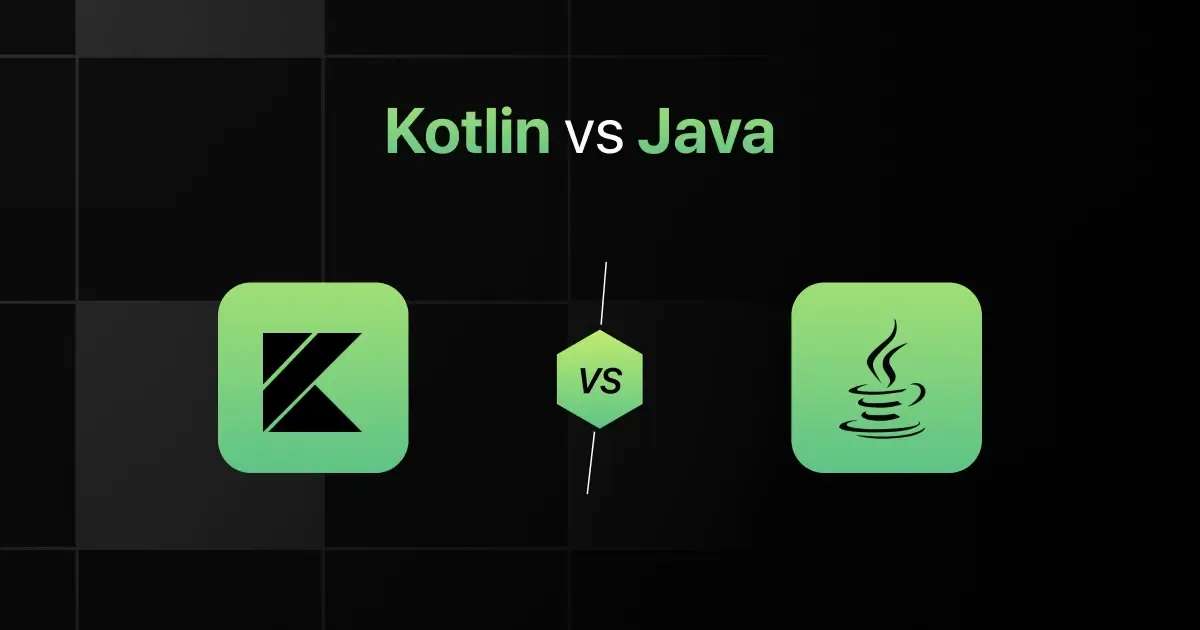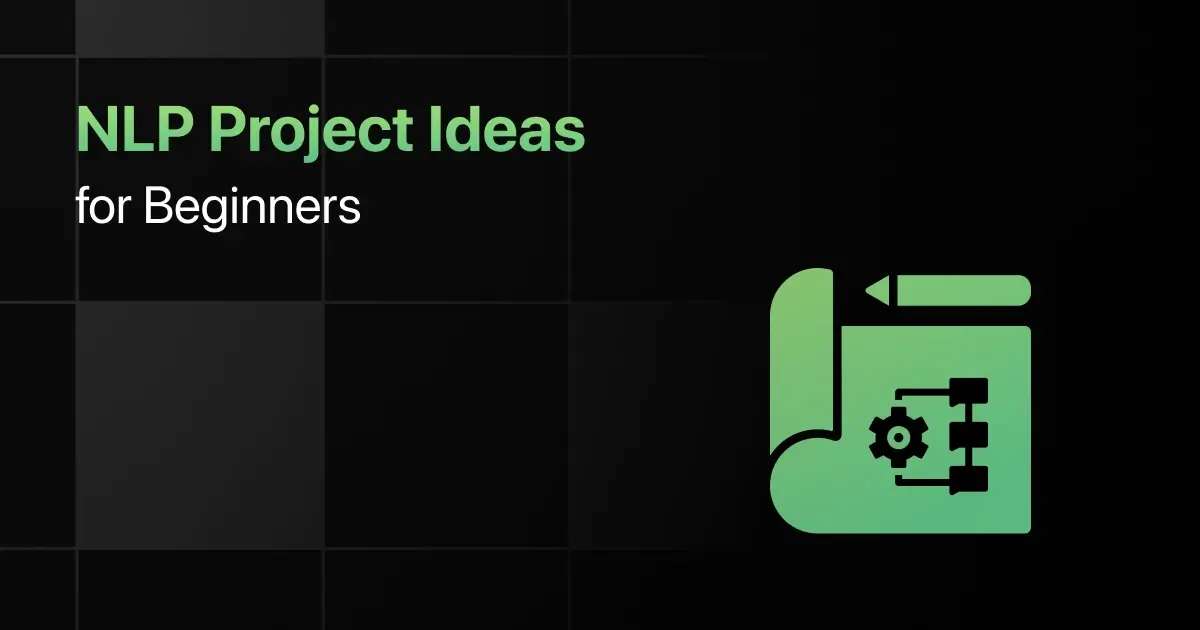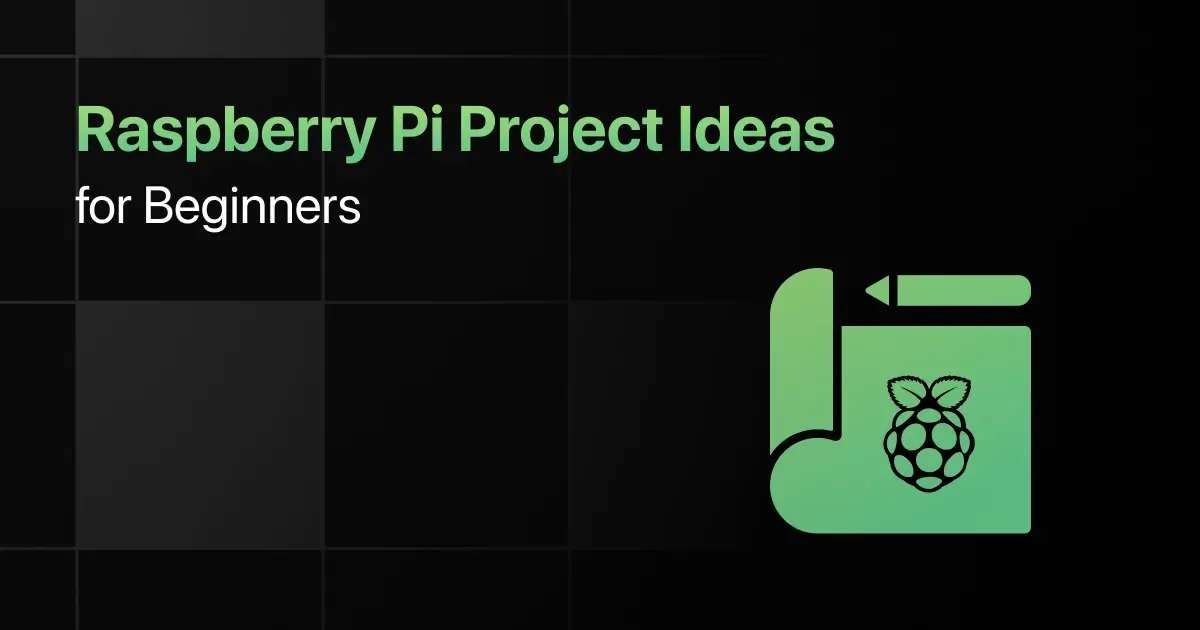Kotlin vs Java: Key Differences

When comparing Kotlin and Java, it’s important to look at what sets them apart. The discussion about Kotlin vs Java is common among programmers deciding which language to use for their projects.
The question of Kotlin vs Java which is better? or Kotlin vs Java which is best? depends on what you need for your specific project.
In this article, let’s know the differences between Kotlin and Java.
Kotlin vs Java: Understanding the Key Differences
When comparing Kotlin and Java, it’s crucial to understand the key distinctions that define their usage and capabilities.
One of the most important differences is that Kotlin is a statically typed, modern programming language designed to be fully interoperable with Java, whereas Java is a well-established language widely used for decades, particularly for server-side applications.
The following are other major differences between Kotlin and Java:
| S. No. | Parameters | Kotlin | Java |
|---|---|---|---|
| 1 | Developed By | JetBrains | Sun Microsystems (now owned by Oracle) |
| 2 | Release Year | 2011 | 1995 |
| 3 | Paradigm | Object-oriented, Functional | Object-oriented, imperative |
| 4 | Syntax | Concise, expressive | Verbose, traditional |
| 5 | Performance | Comparable to Java | High performance |
| 6 | Applications and Use Cases | Android apps, web applications, server-side | Enterprise applications, Android apps, web apps |
| 7 | Learning Curve | Relatively easy, especially for Java devs | Steeper, especially for beginners |
| 8 | Libraries and Frameworks | Interoperable with Java libraries, Kotlin-specific libraries | Extensive Java libraries and frameworks |
| 9 | Platform Independence | JVM can compile to JavaScript or native binaries | JVM, wide platform support |
| 10 | Concurrency and Multithreading | Coroutines for lightweight threads | Traditional multithreading model |
| 11 | Tooling and IDE Support | Strong, especially in IntelliJ IDEA | Strong, supported widely in various IDEs |
| 12 | Memory Management | Managed by JVM | Managed by JVM |
| 13 | Error Handling | Supports null safety, exceptions | Exception handling requires null checks |
| 14 | Security | Similar to Java, benefits from JVM security features | Robust, mature security features |
| 15 | Scalability | Good, similar to Java | Excellent, proven in large-scale systems |
| 16 | Key Features | Null safety, extension functions, infix notation | Robust, stable, and versatile |
| 17 | Integration with Other Technologies | Seamless with existing Java ecosystem | Extensive integration capabilities |
| 18 | Community and Support | Growing rapidly, strong support from JetBrains | Vast, well-established community |
| 19 | Job Opportunities | Increasing, especially in Android development | Wide-ranging, across many industries |
| 20 | Future Prospects | Bright, evolving with modern programming needs | Stable, continues to be widely used |
Kotlin vs Java: Which One to Choose?
Choosing between Kotlin and Java can be challenging, but by understanding their distinct advantages, you can make an informed decision.
Choose Kotlin If:
- You are involved in Android app development, especially since Kotlin is officially supported and recommended by Google for Android development.
- You appreciate a language that emphasizes readability, conciseness, and safety, especially null safety, which can significantly reduce the possibility of null pointer exceptions.
- You value a language that integrates seamlessly with existing Java code and leverages the Java libraries while offering additional features like coroutines for asynchronous programming and more concise syntax.
- You seek to develop on multiple platforms, including JVM, Android, iOS, web, and native applications, as Kotlin provides multiplatform project capabilities that share logic across platforms.
- You focus on developing modern, lightweight applications or are interested in migrating existing Java applications to a more concise and expressive language, making development faster and more enjoyable.
Choose Java If:
- You aim to work as a backend developer, mobile app developer (especially Android), or enterprise-level software engineer.
- You seek a language with an extensive ecosystem, including powerful tools and libraries for any type of application, from web servers to desktop applications and everything in between.
- You value a language that is renowned for its stability, scalability, and maintainability, which makes it preferred for large-scale, mission-critical software systems.
- You need a universally compatible language that runs on billions of devices worldwide, supported by a mature environment, extensive documentation, and a large community.
- You focus on building enterprise-level systems where Java’s long-standing reputation and performance in large systems play a crucial role, ensuring the reliability and efficiency required by such applications.
Final Words
The main difference between Kotlin and Java lies in their design and use.
The purpose of understanding the Kotlin vs Java difference is to choose the right tool for the job, depending on factors like the project’s size and how easy it is to maintain.
Explore More Kotlin Resources
Explore More Java Resources
- Java Learning Websites
- Java Practice Websites
- Java YouTube Channels
- Java Project Ideas
- Java Apps
- Java IDEs
- Java MCQ
Explore More Comparisons
- Python vs Java
- C vs C++
- Python vs C++
- Angular vs React
- TypeScript vs JavaScript
- C vs Java
- Java vs JavaScript
- Flask vs Django
- C vs Python
FAQs
The key differences between Kotlin and Java are:
- Kotlin provides null safety through its type system; Java has more traditional null handling.
- Kotlin features a more concise syntax, reducing boilerplate code; Java is more verbose.
- Kotlin supports functional programming features such as lambdas and higher-order functions natively; Java has added similar features but they are more verbose.
The choice between Kotlin and Java depends on specific project requirements and the team’s familiarity with the languages. Choose Kotlin for modern Android development and more concise code, and Java for legacy systems and applications.
Kotlin is faster than Java.
The primary use cases of Kotlin and Java are:
- Kotlin is favored for Android development and backend development with frameworks like Ktor.
- Java is used extensively in large-scale enterprise applications, server-side technologies, and big data technologies.
Kotlin is often considered easier to learn for beginners due to its more readable and concise syntax, whereas Java’s verbose nature can be more challenging to grasp initially.
Yes, both Kotlin and Java can run on different platforms.
Yes, both Kotlin and Java are extensively used for developing mobile apps, particularly for Android. Kotlin is officially supported and recommended by Google for Android development.
Java developers traditionally have a broad range of opportunities given Java’s extensive use in enterprise environments. Kotlin developers, while fewer in number, are in high demand in Android development and increasingly in backend development roles.
Related Posts



Golang Interview Questions
Are you preparing for your first Golang interview and wondering what questions you might face? Understanding the key Golang interview questions …
Warning: Undefined variable $post_id in /var/www/wordpress/wp-content/themes/placementpreparation/template-parts/popup-zenlite.php on line 1050








